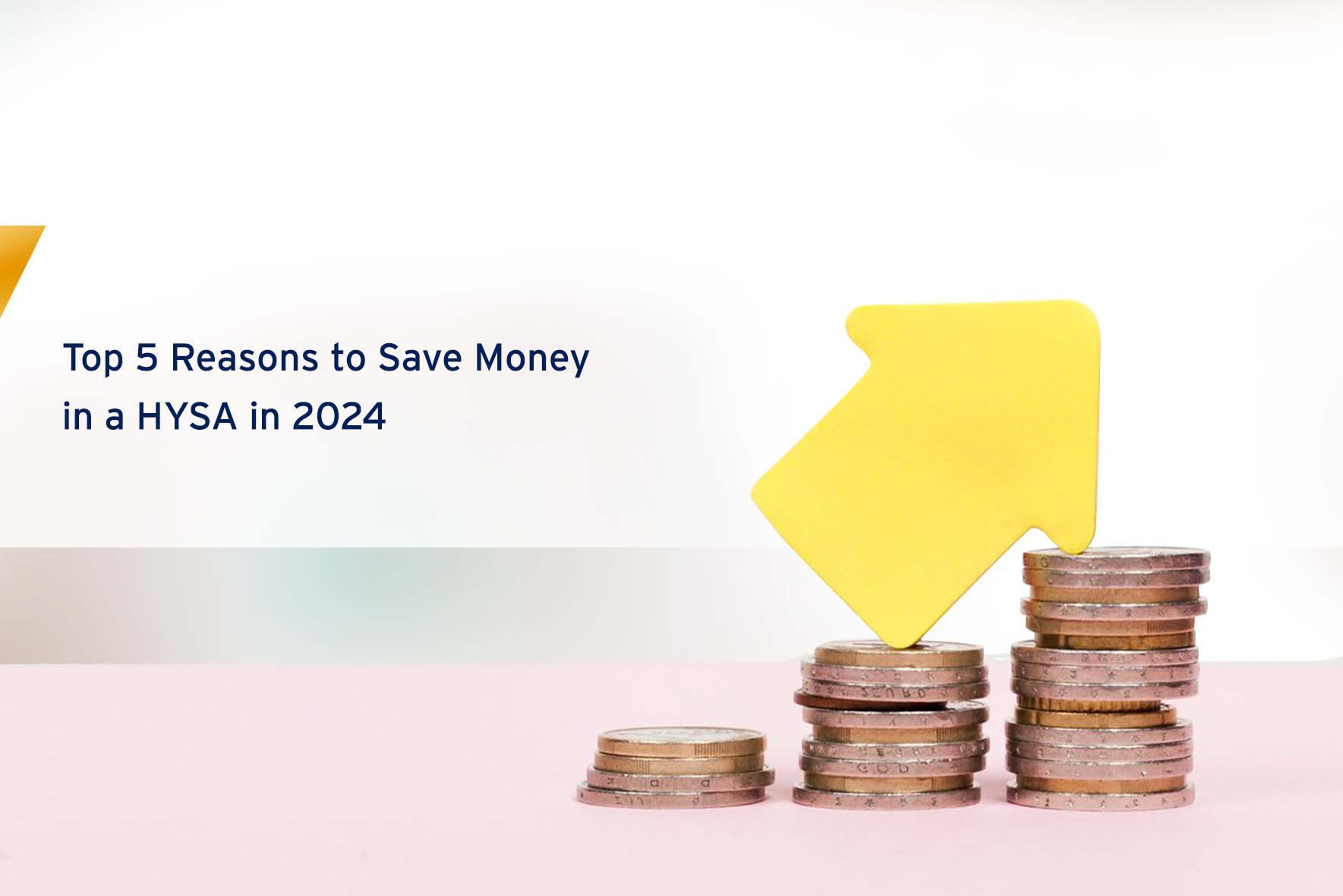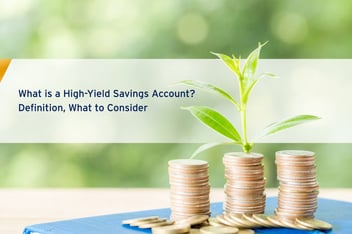
Top 5 Reasons to Save Money in a HYSA in 2024
Author Taiwo Temitope-Adesope
As you begin a new cycle in your financial journey, there are many reasons to save money in a High-Yield Savings Account (HYSA). A HYSA is a type of savings account that offers a higher interest rate compared to traditional savings accounts. These accounts are typically offered by online banks, digital financial institutions, or certain credit unions.
“High yield” refers to the comparatively elevated interest rates that these accounts provide, allowing savers to earn more on their deposits.
Features of High-Yield Savings Accounts
Here are some key features of a High Yield Savings Account.
● Interest Rates
One of the primary features of a HYSA is that it comes with higher interest rates. The interest rates offered by these accounts can vary but are generally more competitive than those of regular savings accounts. The goal is to provide savers with the opportunity to earn a greater return on their savings. This is one of the reasons to save money in a HYSA.
● Online Accessibility
HYSAs are often managed online. Unlike traditional savings accounts, they may not have physical branches, and transactions are conducted through online platforms or mobile apps. This can be convenient for individuals who prefer digital banking.
● Minimum Balance Requirements
Many High-Yield Savings Accounts have minimal or no minimum balance requirements. This makes them more accessible to a broader range of savers who may not want to maintain a large balance in their accounts. This is one of the many reasons to save money in a HYSA.
● NDIC Insurance
Reputable banks offering high-yield savings accounts are typically insured by the Nigerian Deposit Insurance Corporation (NDIC). This means that deposits in the account are protected up to the maximum limit per depositor, per bank. NDIC insurance provides a level of security for savers in case the bank faces financial difficulties.
● Low or No Fees
High-Yield Savings Accounts often come with fewer fees compared to regular savings accounts. While fees can vary between institutions, it's common for these accounts to have minimal monthly maintenance fees, if any.
● Accessibility of Funds
High-yield savings accounts provide easy access to funds. While they are not designed for frequent transactions like current accounts, they allow savers to withdraw money when needed without significant restrictions.
Individuals considering a HYSA should carefully review the terms and conditions, including interest rates, fees, and any restrictions on withdrawals, to ensure the account aligns with their financial goals.
Regular Vs High-Yield Savings Accounts
Regular savings accounts and high-yield savings accounts are two common types of savings vehicles, each with its own set of characteristics.
Here's a comparison between the two:
● Interest Rates
Regular savings accounts typically offer lower interest rates compared to high-yield savings accounts. The interest earned is often below the national average and may not keep pace with inflation.
● Accessibility
High-Yield Savings Accounts are often available through online banks or financial institutions while regular savings accounts are widely available and offered by most banks and credit unions.
● Minimum Balance Requirements
Some regular savings accounts may have minimum balance requirements, and falling below these requirements could result in fees or a reduction in interest rates.
On the other hand, many high-yield savings accounts have little to no minimum balance requirements. This makes them more accessible to a broader range of savers.
● Fees
Fees associated with regular savings accounts can erode your savings over time while High-Yield Savings Accounts tend to have fewer fees than regular savings accounts. However, it's important to review the terms and conditions to understand any potential fees associated with specific actions or circumstances.
Reasons to save money in a HYSA.
Opening a high-yield savings account can offer several advantages compared to traditional savings accounts.
Here are reasons why you should consider opening a high-yield savings account for saving money:
1. Greater Earning Potential
With higher interest rates, your savings have the potential to earn more over time. This is particularly beneficial for individuals looking to build an emergency fund, save for a specific financial goal, or simply maximize the growth of their savings.
2. Accessibility and Liquidity
High-Yield Savings Accounts offer the same level of liquidity as traditional savings accounts. You can access your funds easily when needed, making it a suitable option for both short-term and long-term savings goals.
3. Automatic Transfers and Goal Tracking
With High-Yield Savings Accounts You can set up recurring transfers from your checking account to your savings account, making it easier to consistently save money towards specific financial goals.
HYSAs offer features such as automatic transfers and goal tracking.
4. Protection Against Inflation
While no savings account can eliminate the impact of inflation, High-Yield Savings Accounts with competitive interest rates can help your savings grow at a rate that better keeps pace with or outpaces inflation, preserving your purchasing power.
5. Encourages Saving Discipline
Knowing that your money is earning a higher interest rate can be a motivating factor to save consistently. High-yield savings accounts encourage financial discipline and can be a valuable tool for achieving your savings goals.
Before opening a HYSA, it is important to select an account that suits your financial goals. nairaCompare has a wide range of savings accounts options you can compare and choose from.

Visit nairaCompare and start comparing savings accounts from trusted providers!
Money-Saving Hacks Every Savvy Saver Should Know
Saving money is a smart financial habit, and there are various hacks and strategies that savvy savers employ to maximize their savings.
Here are some money-saving hacks to help you make the most of your finances:
● Create a Budget
Establish a realistic budget that outlines your income, fixed expenses, and discretionary spending. Having a clear understanding of your financial inflows and outflows helps you identify areas where you can cut back and save more.
● Automate Savings
Set up automatic transfers to your savings account. This ensures that a portion of your income is consistently directed towards savings without requiring conscious effort. Treat savings as a non-negotiable expense.
● Comparison Shop
Before making a purchase, compare prices from different retailers or online platforms. Take advantage of price-comparison websites and apps to find the best deals. This applies to both big-ticket items and everyday purchases.
● Negotiate Bills
Regularly review your utility bills, insurance premiums, and subscription services. Negotiate with service providers to get better rates or consider switching to more cost-effective alternatives. Loyalty can sometimes be rewarded with discounts.
● Embrace the 30-day Rule
Before making non-essential purchases, implement the 30-day rule. Wait for 30 days, and if you still feel the need to buy the item, go ahead. This helps eliminate impulse purchases and gives you time to evaluate the necessity of the expenditure.
● Build an Emergency Fund
Prioritise building an emergency fund to cover unexpected expenses. Having a financial safety net prevents you from dipping into your regular savings or going into debt when faced with emergencies.
● Buy Used or Refurbished
Consider buying used or refurbished items instead of brand-new ones, especially for items with a high depreciation rate, like electronics. You can often find quality products at a fraction of the cost.
● Review Subscriptions Regularly
Evaluate your subscriptions regularly and cancel those you no longer use or need. This includes streaming services, gym memberships, and other recurring expenses. Redirect the money saved into your savings or investment accounts.
Remember that successful saving often involves a combination of discipline, conscious decision-making, and ongoing evaluation of your financial habits. Implementing these money-saving hacks can contribute to building a more secure financial future.
Visit nairaCompare to learn more about interest rates, savings options and loan offers.
About Author

Taiwo Temitope-Adesope
Taiwo is a passionate storyteller and strategist dedicated to empowering women and crafting compelling narratives. A First-Class graduate in Mass Communication from Covenant University, she specializes in writing, public relations, and digital marketing. As a Content Manager at Suretree, she drove a 50% increase in web traffic through SEO and boosted website engagement by 60% in just four months. Her leadership experience includes serving as Public Relations Officer for the Covenant University Student Council and contributing to impactful volunteer initiatives. With expertise in strategic thinking and business acumen, Taiwo continues to create stories that inspire confidence and imagination.
.png?width=1615&height=444&name=nairaCompare%20Christmas%20logo%20(PNG).png)








